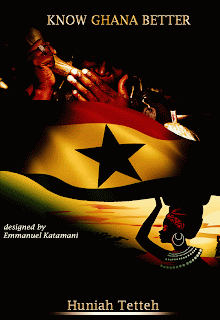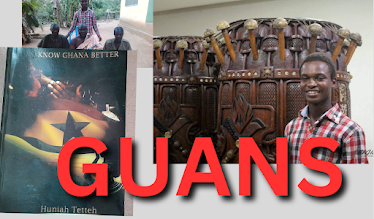THE NTRUBO PEOPLE OF GHANA ALSO CALLED DELOSE
The people of Ntrubo are also called Delose. The Delose speak the Delo language. They are Gurs who migrated from ancient Ethiopia and passed through several areas before getting to an area which would be in somewhere close to the Sissaala areas in the Burkina Faso then to Ghana.
Delo is a Gur language
that falls within the western Gurma language together with Vagla, Templima and
Mo.
They are located in a
group of communities in the south-eastern corner of the Nkwanta district, Oti Region
reaching over into Togo. “Ntrubo” means “take the lead.” Furthermore, according
to one Mr. Mpaniasah of Brewaniase, Ntrubo is from the word tiribo meaning “we
own the area.” History goes that they dug wells to mark their territories and
perhaps other tribes wanted to claim the lands.
There is a story
about the Ntrubo people that they do not travel. The reason being that during
the Second World War, the Ntrubo chief did not want his people to go and join
the British army to fight. So then, they had their chief god called Kpebun at
Bontibor where libations were poured and oaths were taken to keep the Delose
from leaving their home. It is furthed that they were then few as well. Later
due to education, they reversed the oaths and their children were allowed to
attend schools in surrounding communities and subsequently to the universities
but then, they would always have to return home.
Ntrubos are hard to find and thus, they are
highly concentrated within the Ntrubo traditional area. The Ntrubomanhene
controls Ntrubo. They have extensive Akan and Guan borrowings into their
language making it a very unique language. The Ntrubo variant Chala is very
much related to Delo.
They worship
Wurubuare and the majority practice the Christian faith. They have cultural affinities
with the Atsode (Guan) and the Adele likewise the closely related Chala. The
Delose are at least polyglots in Twi, Ewe, English and Ntrubo. Some can even
speak the closely related Chala and Gikyode language in addition to the Twi,
Ewe, English and Delo language. They celebrate the Kedibom festival. Kotokoli
is a southern Gurma language that is related to the Ntrubo language.
Ntrubo-Brewaniase is the traditional capital of Ntrubo. There are some
Ntrubo in Togo after the Togoland was partitioned into British-Togoland and
Togo. Other communities include Pusupusu, Bontibor, Ntrubo-Akyem, Akyem-Digbe, Salifukrom,
Obanda, Obanda-Ando, Aburuwa, Asukawkaw, Ntrubo-Tamale, Bankamba, Fankyeneko,
Kankyeakura, Laaboanu, Sangbabea, Namraka, Kantame, Dogbega, Kpena, Nkpaya,
Asobuye, Kyimfa and Nkpokploko.
The Ntrubo communities have clans which vary from community to community
but then for Brewaniase, the clans are; Diyala clan, Afile clan, Awubu clan,
Sharide clan and Agbegbɛɛ clan.
COMMON COURTESY IN DELO
|
NUMBII |
MMUAYꜪ |
WORD |
RESPONSE |
|
Nwusi we si na? |
Midei! |
How are you? |
I am fine! |
|
Nwe si na? |
Midei! |
Are you fine? |
I am fine! |
|
Ila or Ilɛo! |
Ilɛo! |
Good morning! |
Good morning! |
|
Baasi! |
Kara! |
Good afternoon! |
Good afternoon! |
|
Baasi! |
Kara! |
Good evening! |
Good evening! |
|
Kara! |
Kara ke! |
Thank you! |
Do not mention! |
|
Wa sira! |
|
I beg you! |
|
|
Kɔkɔri! |
Yaa oo! (male) Yoo oo! (female) |
Welcome! |
Ok! |
Credit: Abuburuwa Mpaniasah, Bankaba & Ohumawu
Wisdom, Pusupusu







Comments
Post a Comment
Thank you! Gladly appreciate your feedback. You can also reach out personally via whatsapp or follow me on youtube/facebook Huniah Tetteh.